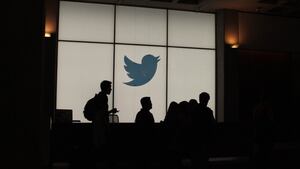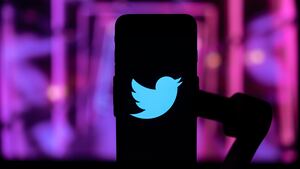On Saturday afternoon, liberal commentator Brian Krassenstein made yet another attempt to get his Twitter account back.
Along with his twin brother Ed, Krassenstein had become one of the most distinctive Twitter characters during the first years of the Trump administration—heroes of the anti-MAGA “resistance” in large part for their skill at consistently landing amid the top replies to a Donald Trump tweet. Together, the brothers had more than 1.4 million followers.
But in 2019, Twitter banned the brothers for allegedly juicing their numbers on the site with fake accounts. The brothers insisted they were innocent, but the bans persisted. Kicked off the site that was most important to their followers, the Krassensteins were reduced to making hundreds of videos about blockchain technology that often received just a few dozen views.
After Elon Musk bought Twitter, though, the Krassensteins hoped they could get back on the site. Former Twitter employees who quit the site after Musk’s purchase encouraged them to email Ella Irwin, Musk’s new head of Trust and Safety at the social giant. After exchanging a few emails with Irwin and answering a few questions to verify their identities, the Krassensteins were back.
“They unbanned us within an hour or so,” Brian Krassenstein told The Daily Beast.
The Krassensteins are just two of the high-profile banned users now clamoring to get back on the platform, as Musk promises to lift many user suspensions. But while the Krassensteins’ greatest crimes may have been overzealously responding to Trump’s tweets—and a children’s book that portrayed Special Counsel Robert Mueller as a buff Chippendale—more extreme figures from the right have returned to the platform, too.
Meanwhile, the permanently exiled Twitter users who haven’t managed to return are wondering why they’ve been left out.
Twitter didn’t respond to a request for comment about its ban policies, but for banned users Musk’s Twitter takeover seemed to promise an end to the bans they thought would last for the rest of their lives. In November, Musk unsuspended Twitter’s most famous banned user: Donald Trump.
While Musk has insisted he won’t restore InfoWars chief Alex Jones’s account, other pro-Trump figures—including Trump adviser Roger Stone—have returned to the site.
Musk’s lax approach to the bans has also meant a return of several prominent white supremacists, sometimes with no clear explanation for why their bans ended. Late on Friday, Jan. 6 rioter and Charlottesville “Unite the Right” marcher Timothy Gionet, who goes by the alias “Baked Alaska,” posted on social media app Telegram that his ban was still in place. A few hours later, he posted an email revealing that Twitter had reversed itself and his account had been restored.
Other racist figures have also rejoined the site, including Patrick Casey, the former head of white nationalist group Identity Europa, and Andrew Anglin, the neo-Nazi publisher of white supremacist website The Daily Stormer.
Extremists are noticing Musk’s new policies. The billionaire’s Twitter purchase has coincided with a surge in hate speech on the platform.
When far-right figure Laura Loomer was banned from Twitter in 2018, she took it badly, chaining herself to a door at a Twitter office building while wearing a yellow Star of David. Not even winning a congressional primary could return Loomer, who has a history of bigoted attacks on Muslims, to the site. When Loomer saw that Musk wouldn’t lift Alex Jones’s ban, she thought she would stay off Twitter forever.
But soon after Musk took over Twitter, Loomer discovered that she was able to log back into her suspended account and file an appeal. A week passed. Loomer never received an email from Twitter telling her that her account had been restored. Instead, it was text messages from friends that let her in on the news.
“I personally never really thought that I was going to get my account back,” Loomer told The Daily Beast.
For far-right personalities who remain banned from Twitter, the reasoning behind the lifted suspensions can seem inscrutable. On Telegram, the social media app that has become a refuge for Twitter exiles, one right-wing pundit posted a meme from Spongebob Squarepants that showed one character gazing longingly at his friends playing outside. The people having fun outside were Stone and Loomer, both back on Twitter. Meanwhile, he was stuck inside—or at least, on Telegram.
Just two full days after their return to Twitter, the Krassenstein brothers have seized on “co-tweeting.” The feature, which launched after they were banned, lets multiple Twitter users tweet together. But Brian Krassenstein said he and his twin didn’t want to fall into old habits on the site. He wants to be, he said, “less divisive.” The Krassenteins might even tweet less.
“I feel that we were justly reinstated, so I’m happy in that respect,” Krassenstein said. “I don’t know that we’re going to use the accounts as much as we did.”








